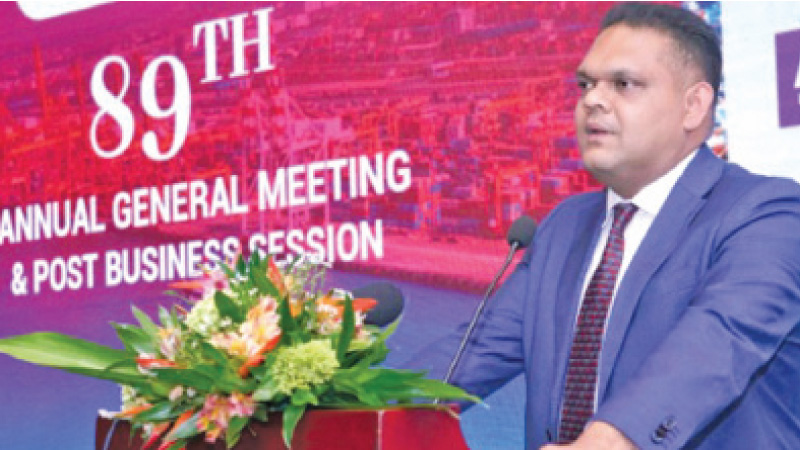Over the years Sri Lanka has seen many cycles of economic stabilisation followed by a return to crises within a short period. The main reason for this is the failure to follow through with a reform program, said State Minister for Finance Shehan Semasinghe.
He was speaking at the Annual General Meeting of the Ceylon Chamber, Import Section, in Colombo on Wednesday.
“As soon as stabilisation was achieved, Sri Lanka had the habit of reverting to the past practices that caused the crisis in the first place. That is why Sri Lanka has gone to the IMF on 16 previous occasions,” he said.
To make this IMF program, the last, Sri Lanka must ensure continuity of the tough reforms that have enabled the hard won gains that are experienced today.
The Economic Transformation Bill (ETB) creates a framework that brings together a common minimum set of goals and targets that would ensure such stability continues across political cycles.
“However, in the end it is up to the people to decide whether we continue on a path of economic reform that has enabled Sri Lanka to raise its head after the crisis, or whether we revert to the policy measures that brought us to the crisis in the first place,” the State Minister said.
The Government is also implementing a comprehensive set of policies aimed at addressing weaknesses in governance.
“A major focus of this includes addressing corruption vulnerabilities at the key revenue collection agencies including the Customs Department.”
Specialised units are being set up in each department which will set up internal oversight on anti-corruption measures linked to the Commission to Investigate Allegations of Bribery or Corruption (CIABOC).
Efforts to improve digitisation will continue with constant improvements being envisaged. Increased risk based inspections will be supportive of these efforts.
“Links between the Inland Revenue Department (IRD) and the Customs Department are also being enhanced as a part of broader information sharing efforts between the IRD and other institutions.
“All of these measures are expected to improve revenue collection, formalise the import industry, and improve governance while minimising corruption vulnerabilities,” Semasinghe said.
In the modern economy where tariffs have declined at a global level, trade competitiveness is to a great extent influenced by effective trade facilitation.
Hence measures to improve trade facilitation are also being accelerated, particularly with the renewed efforts to establish the Trade National Single Window. “This has long been delayed, but is now getting the attention needed to play a constructive role in boosting trade and economic growth,” he said.









